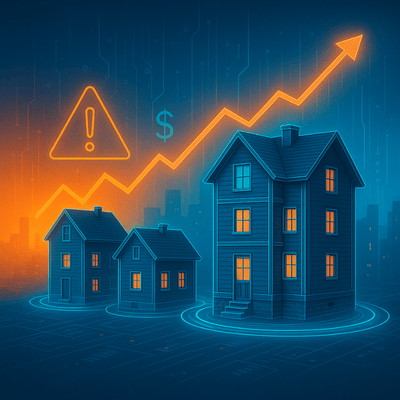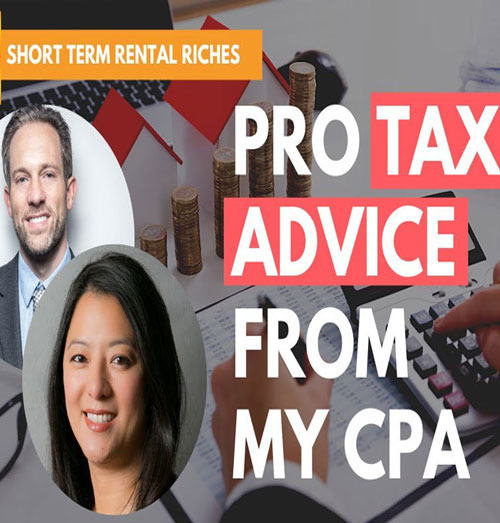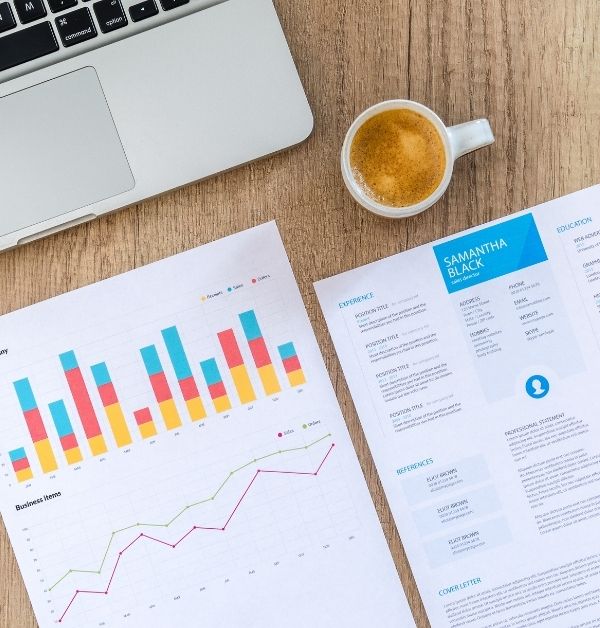Airbnb Pricing Insights: Uncover 6 hidden costs like commissions, fees, and taxes that impact guest pricing. Maximize revenue with smart strategies today!
If you’re managing short-term rentals, you know how vital dynamic pricing tools are to maximizing your revenue. Platforms like PriceLabs and Wheelhouse integrate seamlessly with Airbnb, VRBO, and Booking.com, making it easier to adjust rates daily. However, what many hosts don’t realize is that the price you see in your tool often doesn’t match the final cost your guests pay. These hidden costs—from platform commissions to payment processing fees—can significantly impact your pricing strategy and overall revenue management.
In this episode, I’ll break down 6 hidden factors affecting the prices your guests see. Whether it’s Airbnb commission fees, property management software charges, or local taxes, understanding these details is key to staying competitive. We’ll also discuss how cancellation policies, STR promotions, and discounts influence your listings on platforms like Booking.com and VRBO. By the end, you’ll have actionable insights to fine-tune your short-term rental revenue management strategy for optimal results.
Key Points:
-
Channel Commission Fees: Airbnb, VRBO, and Booking.com charge varying fees that directly impact the final price your guests see. Stay informed to stay competitive.
-
Property Management Software Charges: Tools like HostAway and Guesty often add hidden fees, which can inflate the price without your knowledge.
-
Payment Processing Fees: Credit card fees, often around 3%, are passed on to guests or deducted from your revenue, depending on the platform.
-
Cancellation Policies & Rate Plans: Offering flexible or non-refundable booking options can change guest pricing significantly and impact your revenue strategy.
-
Taxes & Local Fees: STR taxes, like transient occupancy fees, can vary widely by location and platform. Make sure your listings on Airbnb, VRBO, and Booking.com are aligned.
Pricing isn’t just about setting competitive rates—it’s about understanding the ecosystem of fees and commissions that affect your listings. By diving into these dynamic pricing insights, you’ll be better equipped to maximize your short-term rental revenue and deliver great guest experiences. If you’re looking for help with revenue management or pricing strategies, my team and I are here for you.
—
Need help managing your short-term rental and you don’t want to go it alone? Shoot us a message here and we’ll see if we can help.
Are you enjoying the podcast? Please subscribe, leave a rating and a review, and share it! This helps us reach others that may find the info helpful as well.
You can find all of our links here including our website, recommended resources, upcoming live event, short-term rental playbook, Instagram, and more!
Click Here to view TranscriptMost of you out there are using a dynamic pricing tool to help manage your short term rental or your boutique hotel, a tool that changes your prices every day, like the airline industry.
But what I bet you probably don’t know is that the price that your guest is actually paying is much different than the price you’re seeing on your dynamic pricing tool.
So stay tuned, I want to jump into six reasons why the price that your guest is paying is different than what you believe.
Let’s jump right into it.
Welcome to Short Term Rental Riches.
We’ll discuss investing in real estate, but with a specific focus on short term rentals.
Quick, actionable items to acquire, manage, and scale your portfolio.
I’m your host, Tim Hubbard.
Welcome back to the show, I’m glad you’re here again.
If you’re new to the channel, my team and I have managed over 40,000 guests, really around the world at this point.
We’re in seven countries, we’re in a whole bunch of cities, and we’ve learned a lot.
You can find all of our past episodes at strriches.com.
And without further ado, I wanna jump into six reasons why your guests are very likely paying a price different than what you believe.
And so, just to break it down real quickly, a lot of us are using these dynamic pricing tools, which integrate with the listing sites where we have our properties listed.
So, they change the prices on our Airbnb calendar, for example.
They change the prices at booking.com or at VRBO.
And a lot of the times that happens by means of a property management software platform.
We use HostAway, there’s other ones out there like Guesty, there’s a whole bunch of them.
You’ve heard me talk about them a lot if you’ve been tuning in for a while.
And so, what happens is your dynamic pricing tool is sending prices to your property management software, but the end price, the price that your guest is actually paying can be quite different than what you’re seeing in your dynamic pricing tool.
One of the reasons why is because your dynamic pricing tools do not pick up all your fees, they don’t pick up all of the commission rates or policies or plans that you have your property set up under.
So I want to break those down.
And really, the first one comes down to the commission rate that either you are paying or your guest is paying.
So depending on the channel you are on, there are different commission models.
Airbnb has multiple, for example, and you may be paying 3% as a host.
You may be covering all of your guest’s commission fee.
And so really, it can range between 14% all the way up to 16%.
So anywhere from like 3% to 16%.
Remember, these commissions are getting added on top of the prices that your guest is paying, especially if they’re coming off the guest side.
Now, booking.com, it’s usually around 15%.
VRBO, usually around 5%.
But these rates change a little bit.
And actually, they change even specific to one reservation.
So let’s just say you have a long-term reservation on Airbnb, for example.
Well, then the fees for that reservation are going to be lower on the guest side than they normally would be.
So I’ve got a really easy way to figure out how much your guests are actually paying.
We’ll jump into that right after going through the next five.
The second one are fees or changes that your property management software is making to the channels.
So remember, you’re plugging your prices into PriceLabs or Wheelhouse or one of those dynamic pricing tools.
That’s going to your PMS, your property management software, and that’s where a lot of additional fees can get added on that you’re not seeing on the dynamic pricing tool.
So if you’re doing a good job, if you’re diligent about your revenue management and you’re reviewing the prices that you’re charging using one of those tools, well, you’re actually reviewing prices that aren’t actually correct.
They’re not the prices your guests are going to see.
And so a couple examples of these PMS type fees that might get added on the top.
So maybe you’re charging your guests a damage waiver.
And again, this isn’t happening at our pricing tool level.
This is happening actually on our property management software or even on the listing site itself.
But it’s definitely changing what your guests are paying.
So that’s usually much more common in the vacation rental world.
But many times your property management software might be charging on top of channels and you don’t even know it.
So HostAway and Guesty, for example, are now charging for direct bookings.
They’re charging a commission on top of Google reservations.
So Google reservations pass through to your direct booking website.
You need a direct booking website to get Google reservations.
But it is a good platform and you do get a lot of extra exposure.
A lot of the big names out there like Focasa and of all vacation rentals, well, they’ve been doing this for a long, long time, and they charge a lot more than the PMS programs do.
You know, it could be anywhere from three to five percent or more.
So that’s something, again, that’s getting added after you adjust for your prices.
So another place where the end price for your guests might be changing is if you have payment processing fees.
So again, these are things that we can set up directly on different listing channels, or they can come from our property management software.
So payment processing fee, very common.
You might see three percent charge for a credit card fee, for example.
OK, so we know that there are different rates.
Our guests are paying based off commission models based on the length of reservation, based on the OTA, where they’re making the reservation.
We know that there’s some additional fees that get put on top of the prices.
We think we’re charging that are coming from our property management software.
The next place where your end result rate that your guest is paying could change again is based on your policies.
We didn’t use to have these options, but now we do.
It’s much more common.
You can find them almost on all of the major online travel agencies like Airbnb, for example, where you can have a flexible cancellation policy or you can have a non flexible cancellation policy.
Your guest decides, but whatever option they go with is going to end up costing them a different amount.
You also have an option for non refundable.
So you’ll find these on booking.com again, you’ll find them on all the major listing sites, but it does change the price that your guest is paying.
And we have to be weary of the end price that our guests are paying, right?
When we’re doing our revenue management, when we’re reviewing our properties, when we’re reviewing the competition, if we’re not comparing apples to apples, if we’re comparing one price that we think we’re charging, but the guest is actually paying a different price, then we’re not comparing apples to apples anymore, right?
So we need to make sure that we understand what the end price is.
Okay, the fourth area where your guests may be paying different amounts, even though you have the same price entered on your dynamic pricing software tool or on your calendar in your property management software, is if you have markups in place on top of the different listing channels.
So hopefully you are on multiple listing channels, so you’re not just on Airbnb, you’re not just on booking.com, but you’re on VRBO, you have your own direct booking website, you’re on Google Vacation Rentals, if you’re operating hotels, hopefully you’re on Expedia, TripAdvisor.
There’s a whole bunch of them, right?
And we know that they charge us a different amount, so a lot of times what we do is we might mark up how much we’re charging on those channels, and we do that through our property management software.
But again, remember, this is changing the end price that your guest is paying on that specific channel.
So if you’re reviewing your numbers, you’re reviewing where all your reservations came in from, let’s just say for the whole last 12 months, and you’re looking at Airbnb, maybe you’ve done a really good job on Airbnb, and then you look at booking.com, and you haven’t quite gotten anything.
Check your markups, make sure that it’s not actually getting marked up more than you expect.
Remember, a lot of these settings are things that we might set up when we first connect our property to a listing site, and then we don’t go back and check it for who knows how long.
So I would highly suggest that you just go back, kind of revisit these six things that we’re talking about today.
All right, on to number five, and this is more of a fun one.
This is in regards to promotions.
So different listing sites have different options for incentivizing potential guests from booking.
We know Airbnb has quite a few common ones, so you might see an early bird promotion that you can apply, you might see an actual special promotion where you can apply a discount over a certain amount of days.
They really try to get you to do this, right, because they boost your visibility.
It ends up below in your price.
And the chances of that guest booking are higher if the price is lower, right?
And so they want you to use all these promotions, whether or not they work that we will save for another episode.
But know that they are there and they are changing the price.
Again, not the price on your calendar, but the end price that your guest is paying.
Another one, very common and sometimes crucial depending on your market.
And those are weekly or monthly discounts.
And so the way you want to do that is you want to scan your competition.
You want to see what they are charging, how much their weekly and monthly discounts are.
And then to take it one step further, and you’re going to need a tool for this, you want to understand how many people are actually booking those properties with those discounts.
If you’re using a tool like PriceLabs or Wheelhouse, you can find out this information.
Remember, these tools are really, really good, but you can’t just turn them on and leave them, right?
You really do need to understand how they work.
If you don’t want to do that yourself, or you’re having trouble, or you just don’t have the time, well, my team and I would love to help you with that.
We are experts when it comes to revenue management.
We have our own in-house revenue managers.
We review this stuff every single day, and we’re constantly learning and trying to stay ahead of the curves.
So if that sounds interesting to you, or if you need help with your reception, we really can handle it all.
We like to think of ourselves as the back-end operating center for any short term rental, any boutique hotel.
You can find out more information.
Just go to strriches.com, there’s a little property management button there, and I’d love to chat with you personally.
So yes, there are a lot of different promotions that we can add depending on which listing site it is.
Expedia has these, VRBO, booking.com, they have their own special promotion.
So that’s one other place that’s changing the end price your guest is paying.
Number six coming up is taxes, and this is the last one.
And this is easier in some markets than it is in others.
And I say that because in some markets, Airbnb and VRBO is handling this all for you.
But most of the time, when you get over to booking.com, you get over to Expedia, you get over to some of these other listing sites, including your direct booking website.
You really have to know exactly what the taxes are, and you have to put them in there, and that will change the end price that your guest is paying.
But we see owners all the time having VRBO and Airbnb collecting those taxes up front, but then on the other sites, it sort of just kind of gets forgotten, right?
So the taxes, and this isn’t just a transient occupancy tax, right?
This could be a tourism fee, it could be a night per guest.
It really depends on your market, on your city, on your neighborhood.
We know this can change a whole lot.
So there we go.
There are six ways that the end price that your guest is paying is probably quite different than the prices that you’re seeing with your dynamic pricing tool, or the prices that you’re seeing on your channel manager calendar.
Let’s recap them real quick.
So number one were channel commission fees.
And so remember, sometimes these are split, right?
Sometimes you’re paying a little bit and your guest is paying a little bit.
Sometimes you’re paying at all.
Sometimes your guest is paying at all.
And sometimes it changes depending on the length of the reservation.
So make sure you understand how much your guest is paying just based off your different commission levels.
The second main piece that’s going to be changing the rates that your guests are ultimately paying are fees.
And so we talked about these very often being within your property management software platform.
So maybe that was a deposit waiver.
Maybe that’s a direct booking fee percentage that gets added on top.
Maybe that was a payment processing fee.
But these are also things like your housekeeping fee, a pet fee, extra person fees.
So remember, these are not on your dynamic pricing tool when you’re viewing those prices.
So you got to remember, these are getting added in on the back end.
And if that puts your price way over your competition’s price for a like size and very similar property, then you’re probably not gonna get booked, right?
So make sure that you’ve got a good grasp on your fees and that end price.
The third piece that we talked about were cancellation policies and different rate plans.
So depending on whether you have a flexible cancellation policy or non-refundable, these things are changing the end pricing.
Some OTAs like booking.com, for example, have different rate plans just built into it that are going to be pulled off of your base price.
Remember, these prices are getting chopped up in quite a few different ways.
We need to know what the guest is actually paying.
The fourth place where you might be altering that end price or with channel markups.
And so this is usually going to happen in your property management software where you’ve set something up and you’re maybe marking booking.com up or you’re marking up your direct bookings, something like that.
But you just want to double check.
Again, this is one of those things that you might have said a long time ago.
You don’t even remember.
And unless you go and check, you’re not going to know what your guests are paying.
The fifth piece are promotions.
And each listing site, like Airbnb, like booking.com, they have different options around promotions.
Very common ones will be weekly or monthly discounts.
So make sure you’ve got a good grasp on that and that you know what the end price is going to be.
The last one, this is no one’s favorite subject, and that is taxes.
And depending on the market that you’re in, depending on the listing channels you’re on, sometimes these are getting charged automatically on your behalf.
Sometimes you need to put them in manually.
And if you’re not putting them in manually, then again, your prices are going to be different across the different channels.
Some people out there, you might hear recommending having rate parity, you know, where they want all of their rates to be the same on all channels.
I would not recommend that because reality is you get different visibility on different channels.
And if you can charge more on another channel, then why wouldn’t you, right?
Assuming that you’re meeting all of your guests’ expectations, I think that it really comes down to a channel-specific revenue management strategy.
So to double check, to make sure that you know exactly what your guests are paying, set up your prices in your calendar, in your dynamic pricing tool, pull up the same date on all your different listing channels and see what that guest is going to pay.
I bet you will find that it actually varies a lot, and that could be the culprit.
That could be the reason that you’re maybe not getting booked on some platforms while you are on others.
So I hope that helped.
Until next time, I know there’s a whole bunch of things that go into revenue management and all these different policies, but we’ve got to keep an eye on it.
I hope that helped a little bit, and I hope you have a fabulous week.
Talk to you soon.
Whether you’re just getting started or you have dozens of properties, one thing remains the same.
Poor management can crush your investment returns.
Our team has learned a lot managing over 40,000 guests, and we’ve compiled our biggest takeaways into a handy guidebook to help you better manage your property.
Equipped with checklists for guest verification to pricing strategies, it breaks down our whole process from start to finish.
Best of all, it’s free for you for being one of our loyal subscribers.
You can get your copy by going to strriches.com.
That’s strriches.com, and I hope it helps you earn higher returns with less headache.















